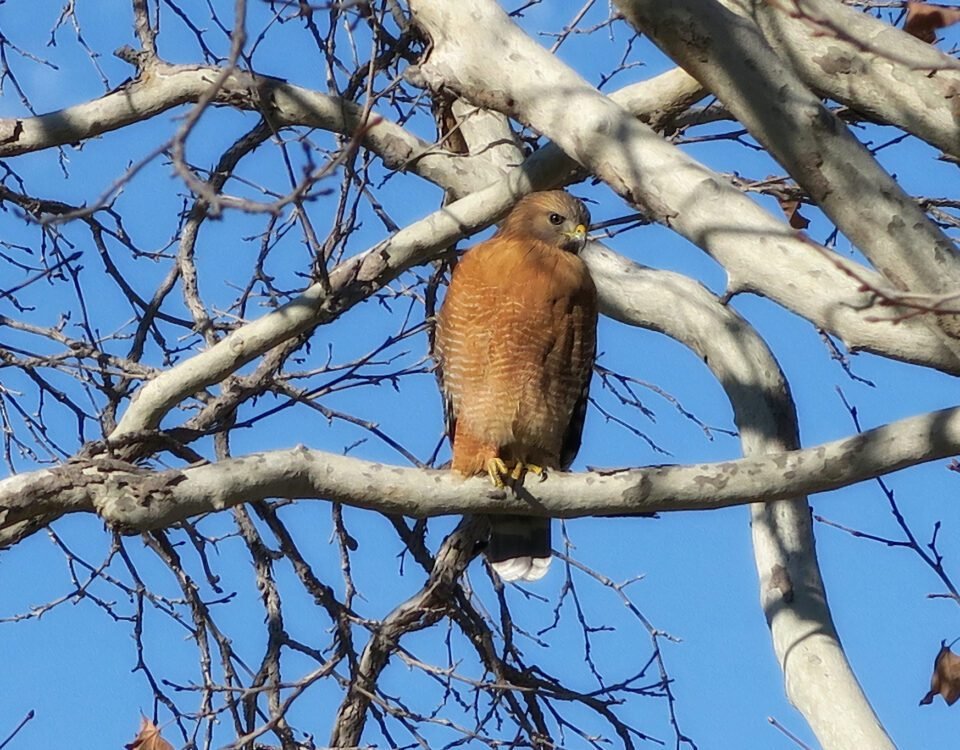


Can Birds Get Fat? (How To Fix And Prevent Obesity)
October 10, 2023


TOP Cardinal Eggs Facts For Bird Lovers & Enthusiasts
October 10, 2023Historically, humans have often associated birds with divine entities, viewing them as representatives or even manifestations of gods. Their ability to fly high in the sky has undoubtedly contributed to this revered status. Consequently, birds have been prominently featured in various life, death, and fortune superstitions.
Talking about fortune, many people believe birds bring bad omens and are bad luck. But is that really so? Let’s find out.
Here’s the short answer:
Certain birds are believed to signify misfortune, while others are thought to indicate good luck and joy. Due to the lack of any scientific proof, these associations remain mythical. However, they might signal individuals to reflect upon and possibly realign their life’s direction.
In this article, we will take a look at some birds that bring bad and good luck, with a few common superstitions associated with certain birds.
Also Read: Why Do Birds Hit Windows? Is It Considered Spiritual?
Are Birds Bad Or Good Luck?
Birds don’t naturally carry good or bad luck. Whether optimistic or destructive, their perceived meanings stem from cultural and personal beliefs that vary across regions and individuals. These interpretations, however, aren’t universally consistent and lack scientific backing.


While the symbolism of certain birds can influence emotions or perspectives, an individual’s actions and mindset play a pivotal role. For instance, a dove might remind someone of peace during a disagreement, not because the bird itself brings peace but because of the individual’s associated symbolism.
Hence, any luck or meaning derived from birds is subjective and mainly based on personal beliefs.
Recommended Read: Do Birds Like Music? Different Bird Species Analyzed
What Birds Bring Good Luck?
Throughout history and across cultures, several birds have been considered harbingers of good luck. These beliefs often stem from ancient traditions, religious beliefs, or folk tales.
- Dove: Symbolizing peace, purity, and love in many cultures, the dove is often associated with positive life events like weddings. Its serene and gentle nature further reinforces this positive symbolism.
- Crane: In many Asian cultures, the crane represents longevity, health, and happiness. Its graceful flight and dance have made it a symbol of eternal youth and joy.
- Peacock: With its vibrant and colorful feathers, the peacock is considered a sign of nobility, beauty, and rejuvenation in several cultures. It is also believed to ward off evil spirits.
- Swallow: Traditionally, the swallow’s return signifies the onset of spring and indicates prosperity and harmony. In maritime legend, swallows are good omens for sailors, meaning safe voyages.
- Stork: Known as a bringer of babies in Western folklore, the stork is associated with childbirth and new beginnings. Its graceful presence is a symbol of familial bonds.
- Robin: In European traditions, spotting a robin is thought to bring good luck. Its bright red chest and cheerful song make it a symbol of joy, renewal, and hope.
- Goldfinch: Its striking gold and red plumage has been associated with positive change and resilience. In European mythology, it’s believed to bring happiness and prosperity to households.
- Hummingbird: Known for their agility and rainbowy colors, hummingbirds are often associated with love, joy, and beauty. In many cultures, they represent resilience as they travel long distances despite their small size, symbolizing the ability to overcome challenges.
- Rooster: This bold and vibrant bird symbolizes courage, vigilance, and good fortune. In Chinese culture, the rooster is among the 12 zodiac animals associated with honesty, brightness, and ambition. It’s also believed to ward off evil spirits.
- Woodpecker: Revered in various cultures, woodpeckers are symbols of opportunity, change, and determination due to their persistent tapping. In Native American traditions, they are often seen as messengers, bringing the beats of nature and rhythm of the earth to the tribe.


Titmice
Which Birds Bring Bad Luck?
Some birds have been considered omens of bad luck or forewarning throughout various cultures and histories due to their behaviors, appearance, or associated myths.
- Raven: Often associated with mystery and the unknown, ravens have been considered symbols of ill omen in many cultures. In some mythology, their black plumage and mysterious calls have made them announcers of doom or loss.
- Crow: Like ravens, crows are sometimes viewed as bad luck due to their black color and scavenger nature. In some cultures, a crow cawing is believed to foretell death or misfortune.
- Owl: While considered wise in some traditions, owls are also seen as omens of death in others due to their nocturnal habits and ghostly calls. Their silent flight and piercing eyes have made them symbols of the unknown.
- Vulture: With their scavenging nature, vultures are often linked with death and decay. In many cultures, the appearance of a vulture is thought to predict impending doom or symbolize the presence of a threat.
- Magpie: In parts of Europe, an isolated magpie is considered bad luck, stemming from old superstitions. Various rhymes and tales have been created to interpret the number of magpies one might see, with a single magpie often bringing sorrow.
- Blackbird: In some superstitions, a blackbird entering the house is considered an ill omen, signifying an impending death or misfortune. Their dark color and distinct song contribute to these beliefs.
- Bat: Though not a bird, bats are often mistaken for them and are associated with the supernatural, darkness, and mystery. In Western cultures, they are sometimes linked with witches and dark magic, making them symbols of bad luck for some.
- Buzzard: Buzzards, like vultures, are often linked to death because of their scavenging habits. Their presence circling in the sky might be perceived as anticipating a demise or foreshadowing impending doom. In some cultures, seeing one can be considered an omen of bad luck or a signal that something negative may soon occur.
- Whip-poor-will: This nocturnal bird, known for its repetitive and haunting call, has been considered a bad omen in some Native American legends. It’s believed that the whip-poor-will’s call could capture a dying person’s soul. In some folk beliefs, hearing this bird sing near home is an ill omen, signifying death or misfortune to come.


Ravens at Night
General Superstitions Associated With Birds
Various superstitions center around birds and their actions are often perceived as omens or signs.
- Being the unlikely target of bird droppings or poop is believed as a sign of good fortune. While it might seem unpleasant, the rarity of such an event makes some think it marks the individual for upcoming luck.
- A bird pecking at a window is thought to signify an attempt by a departed loved one to communicate. Across many cultures, birds are considered soul carriers, implying that a tapping bird might be a spirit seeking attention.
- A bird colliding with a window suggests upcoming challenges in one’s life. If the bird succumbs to the impact, it’s believed to signify a death within the residence.
- A dark-feathered bird perched on your windowsill is considered a harbinger of good luck.
- The entrance of a bird into one’s home traditionally signals an upcoming death within the household. Due to such beliefs, some individuals avoid bird-themed decorations entirely to sidestep potential ill omens.
Editor’s Pick: Why Do Some Birds Have Red Eyes? [EXPLAINED]
Conclusion
Colors, plants, and animals are frequently connected with symbolic meanings, often believed to predict future events. Although these symbols arise from their appearance or shared cultural experiences, their predictive power isn’t guaranteed. Such beliefs are human constructs passed on through generations since ages.
As highlighted earlier, birds can symbolize both positive and negative outcomes. This highlights that interpretation is subjective and based on individual perceptions and the significance we assign.
While understanding these symbols can be enlightening, it’s essential not to base your decisions solely on them. Instead, use them as guiding signs while controlling your path.



